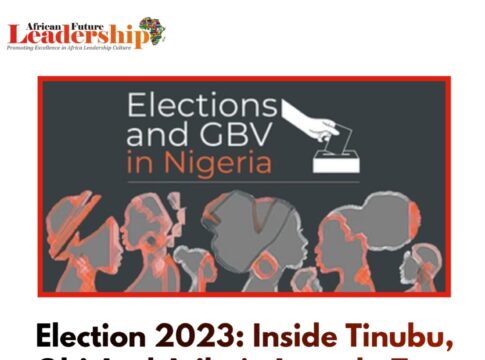Nigerians are anticipated to elect their 17th leader on Saturday when millions of citizens vote in the presidential election.
To decide on who to vote for, the over 94 million registered voters are largely reliant on the promises made by the 18 presidential aspirants. Individuals, groups and organisations are scrutinising the aspirants ’manifestos to see how they affect their interests.
READ MORE: 2023 elections: Peter Obi and the Pandora Papers
Organisations such as Her Story Our Story NG and Mirabel Centre which advocate against gender-based violence (GBV) have specifically asked aspirants about their plans to address the gender-based violence trouble in Nigeria.
Bothering GBV cases despite many laws
Between 2017 to 2019, there has been an increase in reported sexual violence cases in Nigeria. According to the National Bureau of Statistics, reported cases of sexual violence rose from 26 in 2017 to 60 in 2019. also, the number of women who reported having experienced physical violence increased from 28 per cent in 2013 to 31 per cent in 2017.
The global pandemic in 2020 complicated cases of gender-based violence leading to the launch of the National GBV Data Situation Room and Dashboard in November 2020.
READ MORE: 2023 elections: Atiku Abubakar and the US Senate
The dashboard, which is an initiative of the Nigerian government in collaboration with the United Nations Development Programme (UNDP) and the European Union-United Nations Spotlight Initiative, provides unified data on violence against women and girls. On the platform Report GBV, 12,460 cases have been recorded and 438 persons have died from GBV from 2019 to 7 February 2023 when AFLM accessed the database.
READ MORE: 2023 elections: The Bola Tinubu files
Also, the reported cases of GBV continue to rise according to data collated by the National Agency for the Prohibition of Trafficking in Persons (NAPTIP) from 2019 to 7 February 2023.
Cases of violence have soared despite the existence of laws like the Violence Against Persons Prohibition (VAPP) Act 2015, the Child Rights Act (CRA) 2003 and the Criminal and Penal codes.
The VAPP Act seeks to prohibit all forms of violence against persons, including women and girls in private and public life and provides maximum protection and effective remedies for victims and punishment of offenders. Whereas the former law defined rape as a crime which could only happen to women through vaginal penetration, the VAPP Act is all-encompassing. It acknowledges that rape is a violent crime against both women and men and it defines‘ instruments of rape ’as further than just a penis; it acknowledges that other parts of the body similar as hands and objects can be used by perpetrators of sexual violence.
Besides the VAPP Act, Nigeria’s Child Rights Act (CRA) guarantees the rights and responsibilities of children and prohibits the use of corporal punishment for children below the age of 18 years. It also specifies the duties and obligations of the government, parents and other authorities, organisations and bodies.




